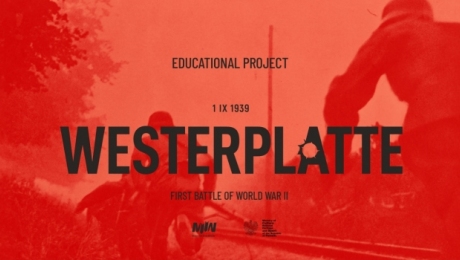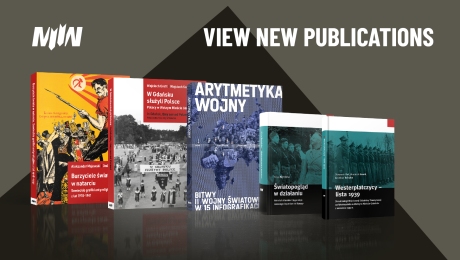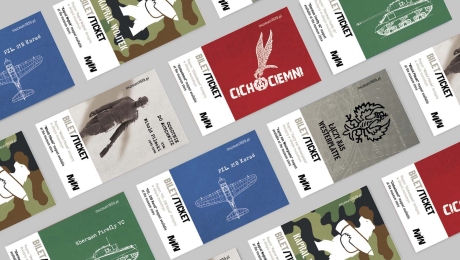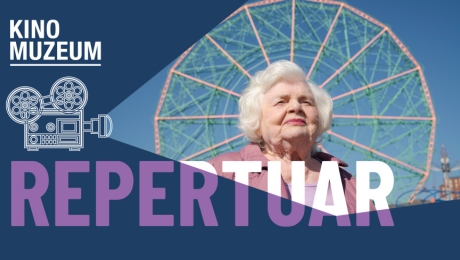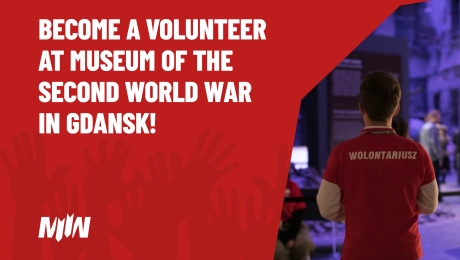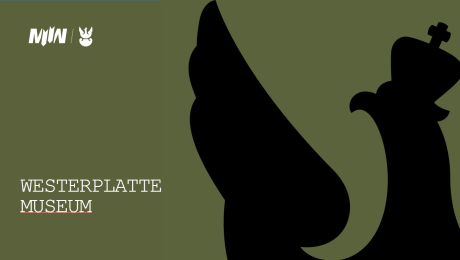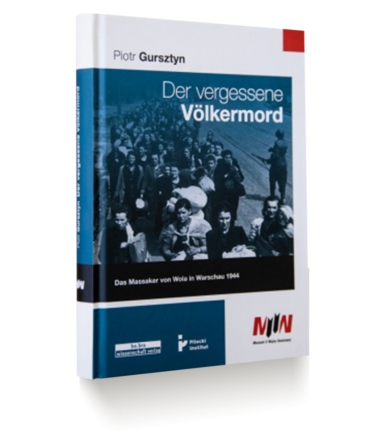Indeed, history is important for the Poles. The auto-stereotype described in the beginning though, is not truth. The Slaughter of Wola, a district of the capital of Poland is one such example. It is an extraordinary event, even when compared to the generally difficult Polish history. In a span of a few days, tens of thousands of people, almost all of them civilians, were murdered. Most of them were women, children, and the elderly. The atrocity was committed in the capital of the country. The perpetrators did not even bother to hide it. Later, when Poland was ruled by Communists, the censors didn’t ban this topic from discussion. Memoirs and first-person accounts were being published throughout the post-war years. Despite all that, this unique event - both in the history of Poland, and compared to all the atrocities committed against civilians, except the Holocaust, in occupied Europe during WWII - was largely ignored by the wider public both in Poland and globally. My book is not only a description of the events, but also a request for an answer to the question about this strange phenomenon of amnesia and denial.
In modern-day Poland, people born many years after the war are growing more and more interested in this tragedy. It is a commendable display of resisting the fall to obscurity and authentic empathy to suffering. It’s also a willingness to atone, even partially, as the perpetrators were not punished and the victims were left to themselves for years. Few people remembered those murdered, nor did anyone help those who, by some miracle, survived. We are however only at the beginning of the road to a dignified remembrance of the 1944 atrocities. I assume that reading this book won’t be easy for the German audience. However, this is what really happened. I hope that thanks to my work, German readers will be able to better understand Poland and her citizens. Lack of knowledge and misunderstandings are a detriment to neighbourly relations. The topic is difficult and painful, and that is precisely why it’s better to talk about it instead of keeping quiet.
Piotr Gursztyn
Museum of the Second World War in Gdańsk, together with the German publishing house be.bra wissenschaft and the Pilecki Institute prepared a German version of the Rzeź Woli book by Piotr Gursztyn, i.e. the forgotten genocide committed by the Germans on Poles at the beginning of August 1944 during the pacification of the Warsaw Uprising: Der vergessene Völkermord. Das Massaker von Wola In Warschau 1944 (tr. Bernard Wiaderny).
The book, penned by a Polish author, presents the German audience with a tale of one of the most gruesome atrocities committed by Hitler’s executioners during WWII. Mr Gursztyn paints a dramatic picture of the merciless slaughter of Polish civilians at the hands of the Germans and their collaborators. The brutality of the extermination may seem truly terrifying for modern audiences. The horror is brought about by the pure bestiality of the act: group executions, burying people alive, murdering children, smashing the heads newborn babies, tossing kids into flaming buildings, burning people alive on the streets, raping women and girls, beating people to death with rifle butts, murdering patients in hospitals. The list of the horrible suffering of Wola residents seems unending. What’s even more frightening is the scale of the atrocities: ca. 59 thousand innocents killed within just a few days of the anti-Polish hell brought about by the Germans.
The Rzeź Woli. Zbrodnia nierozliczona (The Slaughter of Wola. A Crime Without Reckoning) book by P. Gursztyn was initially published by Demart Publishing House in 2014. Despite the undoubtedly difficult topic for the readers, it became quite popular in Poland. This issue, created with the assistance of the Museum of the Second World War in Gdańsk, is intended specifically for the German market and has a similar purpose: to raise the interests of as many people who want to learn something important about the past in order to understand their own times better as possible.
As noted by the author in the foreword to the German edition: The topic is difficult and painful, and that is precisely why it’s better to talk about it instead of keeping quiet.
Piotr Gursztyn (born in 1970), historian, journalist, columnist, graduate of the Department of History of the Warsaw University, working for several newspapers, TV and radio stations (Radio Plus, Telewizja Puls, Telewizja Polsat, “Rzeczpospolita”, “Uważam Rze”, “Do Rzeczy”, Polskie Radio RDC), currently connected with TVP. In 2014, he published Rzeź Woli. Zbrodnia nierozliczona (The Slaughter of Wola. A Crime Without Reckoning) for which he received an award in the Varsaviana 2014-2015 competition. In 2018, he published another well-received book, Ribbentrop-Beck. Czy pakt Polska-Niemcy był możliwy? (Ribbentrop-Beck. Was a Poland-Germany Pact Possible?) In 2017, the President of Poland Andrzej Duda awarded Mr Gursztyn with the Silver Cross of Merit for commemorating the truth about modern Polish history. Currently, the Museum of the Second World War is preparing a Chinese edition of Rzeź Woli.






